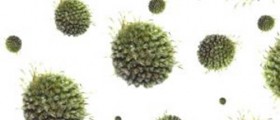Kudzu is a vine that spreads very easily and covers virtually everything in its way. It was introduced in North America during the nineteenth century, when its main purpose was the prevention of soil erosions. Kudzu originates from China, where its leaf, root, and flowers have been used for centuries to treat alcoholism and make certain types of medicines.
Kudzu Benefits
Nowadays it is very efficient in the treatment of alcoholism and the reduction of symptoms of alcohol hangover. Besides the obvious benefits for those who indulge in alcohol consumption, it can also be used for the treatment of dizziness, upset stomach, headache, vomiting, high blood pressure, chest pain, sinus infections, irregular heartbeat, hay fever, flu, common cold, swine flu, itchiness, psoriasis, allergic skin rash and various other heart, circulatory, upper respiratory and skin problems.

- Twenty (20) men participated in a placebo-controlled, double-blind, between subjects design experiment (n=10/group) that tested the effects of kudzu extract (Alkontrol-Herbal™) for its ability to alter alcohol consumption in a natural settings laboratory.
- A single dose of kudzu extract (2 grams total with an active isoflavone content of 520 mg) or placebo was administered 2.5 hours before the onset of a 90 minute afternoon drinking session during which participants had the opportunity to drink up to 6 beers ad libitum; water and juice were always available as alternative beverages.
- During the baseline session, the placebo-randomized group consumed 2.7 ± 0.78 beers before treatment and increased consumption to 3.4 ± 1.1 beers after treatment. The kudzu group significantly reduced consumption from 3.0 ± 1.7 at baseline to 1.9 ± 1.3 beers after treatment.
- The placebo-treated group opened 33 beers during baseline conditions and 38 following treatment whereas the kudzu-treated group opened 32 beers during baseline conditions and only 21 following treatment. Additionally, kudzu-treated participants drank slower.
There are also cases where kudzu has been used for the treatment of gastritis, muscle pain, dysentery, fever, thirst, menopause symptoms, measles, diarrhea, and neck stiffness. It can also be used orally to efficiently treat diabetes, poliomyelitis, migraine, encephalitis, deafness, and various types of traumatic injuries. It can be used intravenously for the treatment of a blood clot induced stroke.
Kudzu contains certain ingredients that counteract alcohol, have an estrogen-like effect, and increase blood circulation. Puerarin, which is commonly found in kudzu, improves the symptoms and signs of chest pain. Kudzu extract is very beneficial for those who are trying to quit drinking alcohol, although it does not improve sobriety or decrease alcohol cravings in people who suffer from chronic alcoholism.
Kudzu can be taken orally to positively affect the mental abilities of women who have had menopause. Puerarin can be used intravenously to treat people who suffer an ischemic stroke which gets triggered by blood clots.
Kudzu can also be used in various forms for the treatment of measles, dysentery, fever, thirst, cold, headache, upset stomach, vomiting, muscle pain, dizziness, alcohol hangover, dysentery, stomach inflammation, neck stiffness, flu, diarrhea, abnormal heart rate, dysrhythmia, high blood pressure, and many other conditions. It can also be used to promote sweating.
Warnings
Kudzu should not be used for longer than four months. There have been some cases where kudzu triggered certain allergic reactions.
Sometimes it can also cause itching, nausea, and the breaking of red cells inside blood vessels. Pregnant and breastfeeding women should avoid kudzu.
Kudzu can also slow the process of blood clotting and worsen bleeding and blood clotting disorders. Kudzu can also affect certain hormone-sensitive conditions.
- www.britannica.com/plant/kudzu
- mdc.mo.gov/discover-nature/field-guide/kudzu
- Photo courtesy of Wikimedia Commons

















Your thoughts on this
Loading...